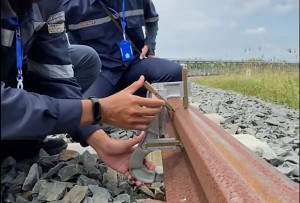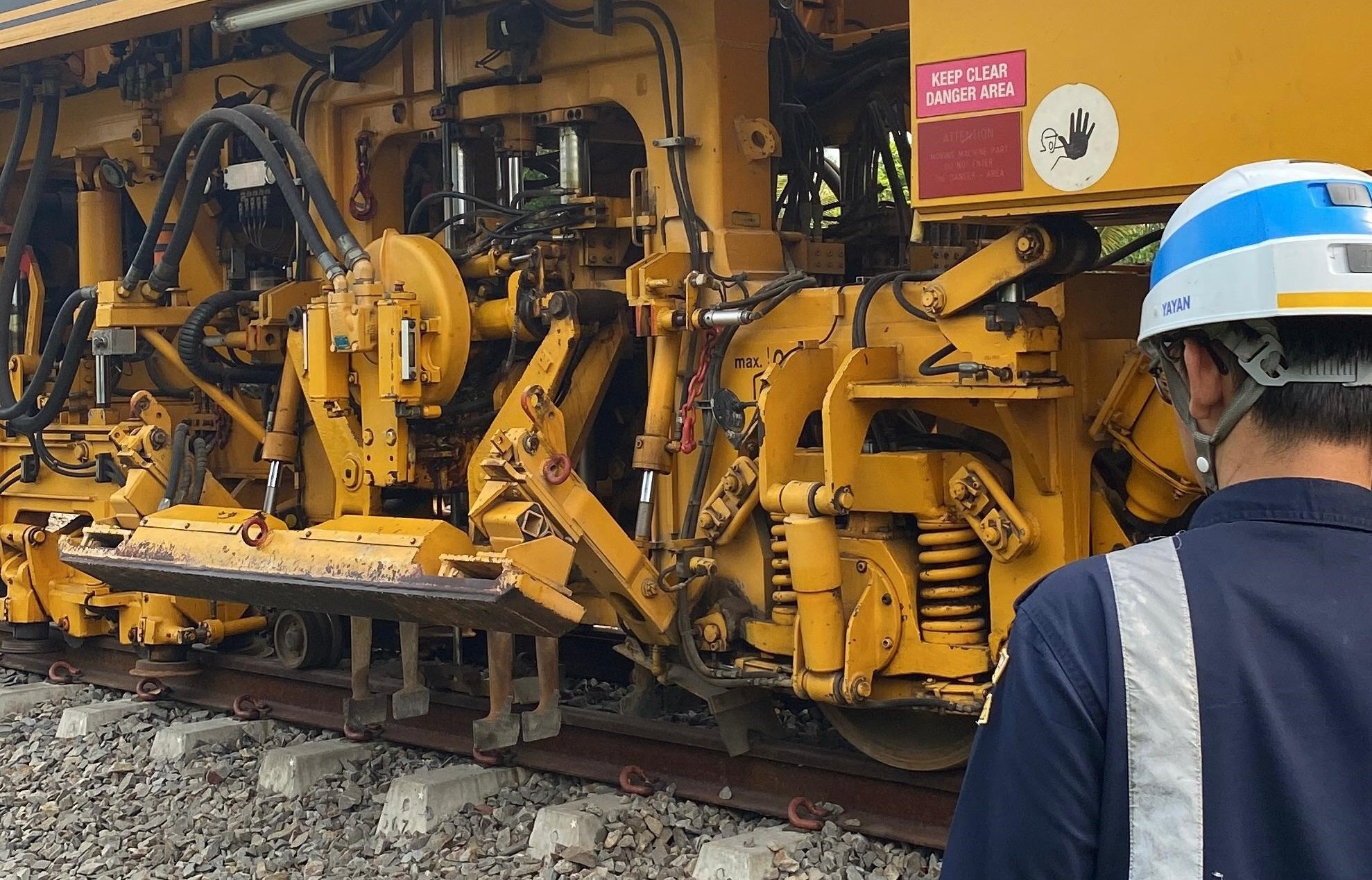Training for Road and Railway Building Inspectors, Increase the Competence of Railway Infrastructure

Grobogan – The Railway Maintenance Office (Baperka) continues to improve the competency development of the Railway Human Resources (HR), not only in the railway facilities sector but also the railway infrastructure.
To support competency improvement in the field of railway infrastructure work, Baperka organizes competency training for road and railway inspectors. The activity was carried out for five days, from 10 to 14 October 2022, at the Ngrombo Workshop Hall and the Railway Maintenance Center emplacement.
Present as resource persons were a team of educators from the Indonesian Railways Polytechnic (PPI) Madiun.
The training activity was opened directly by the Head of the Railway Care Center, M Andi Hary Murty. In his remarks, Andi stressed that one of Baperka's tasks was not limited to maintenance of facilities but also railway infrastructure.
"Maintenance in the railway sub-sector is broadly grouped into two groups, namely maintenance of railway facilities and infrastructure, we have consistently carried out the task of maintaining railway facilities, in the future Balai will carry out maintenance work for railway infrastructure," said Andi when opening the activity in front of the training participants.
There are at least 30 employees participating in the training. The leadership of the Railway Care Center also participated in the training. This simply shows the importance of competence in the field of maintenance of railway infrastructure.
The Railway Maintenance Center has various maintenance facilities for railway facilities and infrastructure. The infrastructure maintenance supporting tools managed by Baperka, until training is implemented, are more dominant in the inspection tools for railway infrastructure components.
Readiness to use infrastructure maintenance support tools must be balanced with the competence of personnel who will receive assignment plots in the field of railway infrastructure. This is the main objective of holding training and education, in addition to preparing HR competencies as well as mapping the potential for personnel in the field of maintenance of railway infrastructure.
The training is carried out using the learning method in the room, and with the practice of using several sets of railroad track inspection tools, which have been prepared by the PPI Madiun teaching team.
The practical agenda can be carried out on the third day. During observations during fieldwork, the training participants were divided into two groups. The division of groups is intended for the effectiveness of practice time, bearing in mind that there are several different inspection tools, including a tool to check the curvature of the rail line, then a tool for calculating the geometry of the rail line, and a third tool that functions to view the rail profile.
Training participants are not only required to understand the operation of the tool, but must understand mathematical calculations to determine the correct parameters for application to the tool. In the training methodology, participants gain knowledge about the logic of thinking about knowing the track field first, then they can apply it to the tool correctly during practice.
During the practice, the participants received assistance from the PPI Madiun teaching team. The practice was carried out at Baperka infrastructure facilities, because the Ngrombo Workshop emplacement was equipped with eight rail lines equipped with a combination of curved and straight lines.
The Madiun PPI Teaching Team, David Malaiholo, gave an explanation of the important criteria for rail lines during field practice assistance for training participants, "on rail lines, it needs resistance to fixed deformation, excessive vertical fixed deformation tends to become a permanent deformation so that the geometry of the railroad becomes not good, with vertical, horizontal and torsional irregularities, this is what the railroad inspectors need to anticipate," explained David Di, who is a lecturer at PPI Madiun and several times a consultant in the field of railways.
All training participants succeeded in mastering the tools and methods of using the tools according to the correct norms. Fundamental knowledge of inspecting railway lines and buildings contributes to the realization of the transportation safety aspects of the railway sector.
All participants in the K3 certification training for work equipment operators, participate in activities in an orderly manner and respect the entire process for the sake of the process determined by the certification administering body. (yogo)



.jpg)

Komentar
LOGIN FOR COMMENT Sign in with Google